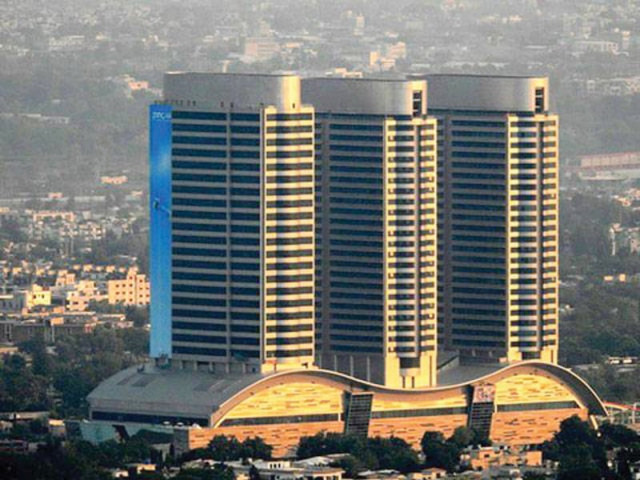FBR’s valuation system was a step in the right direction
There is emerging talk in print media about stagnant performance of real estate sector in Pakistan

High land prices ‘price’ many upcoming firms out of the business implying that they erect entry barriers. The secular decline of exports in Pakistan is being associated with high cost of doing business. photo: file
Commentators are of the view that the real estate prices have either become stagnant or come down since June 2017. The two cited reasons for this stagnation are political instability and real estate tax imposed by the government.
As far as the case of political instability is concerned, it normally doesn’t affect real estate prices.
Why do people invest in the real estate in Pakistan?
The very answer is that it is one of the safest investment options along with high returns. One of the famous rules of finance is ‘high risk and high return’. The real estate prices, however, deviate from that rule as far as the case of Pakistan is concerned if history is our guide.
Following chaos, real estate markets largely stay stable
There are certain economic and social issues associated with high real estate prices. From the economic perspective, high real estate prices are non-productive since they affect the viability of a business firm a great deal. In the large cities of Pakistan where most of the businesses are located, the land prices are almost equivalent to those of the developed world. From a business firm point of view, high land prices increase the fixed cost of a firm, though fixed cost doesn’t affect production. However, high land prices ‘price’ many upcoming firms out of the business implying that they erect entry barriers.
The secular decline of exports in Pakistan is being associated with high cost of doing business. The analysts normally stress that energy crisis, high electricity cost, security concerns and overvalued exchange rate are the main reasons.
However, they ignore the impact of high land prices on the exporting business. Specially, Small and Medium Enterprises (SMEs) have faced the problem of collateral since land is used as collateral to obtain project financing. Whenever SME entrepreneurs think of expanding their businesses, high land prices become an obstacle in this regard.
The businessmen compare and weigh different profitable options and they do invest in those where returns are high. Land prices have provided higher returns over the years. Owing to high returns, the businessmen have either left their core businesses or diverted their attention away from the core.
Many bourgeoning businesses have either invested in the real estate or started to construct housing societies. If we ask businessmen about what they think of investing in real estate vis-a-vis industry or trade or any other business, most of them say that investing in real estate is the most profitable one among all. If we keep discussing this, they say that those people who haven’t invested in the real estate live in a fool’s paradise.
High land prices are the manifestation of growing income inequality in a country as the question of income inequality came to the forefront in the aftermath of the global financial crisis. People with high savings can invest in land and they do have multiple holdings, while people with low savings are priced out of the market.
Real estate players whiten black money worth Rs290b
In addition, high land prices create frustration especially among the youth since their salaries cannot generate enough savings to buy a decent piece of land and construct a home. This frustration along with other factors gives rise to brain drain issue.
In a nutshell, the valuation table introduced by the Federal Board of Revenue (FBR) in FY 2016-17 was a step in arresting the rising land prices. Unfortunately, the government could not revise the valuation table in FY 2017-18 due to political expediency. Last but not least, the continuity and proper implementation of this policy requires political will.
The writer is an Assistant Professor of Economics at SDSB, Lahore University of Management Sciences (LUMS)
Published in The Express Tribune, November 20th, 2017.
Like Business on Facebook, follow @TribuneBiz on Twitter to stay informed and join in the conversation.



















COMMENTS
Comments are moderated and generally will be posted if they are on-topic and not abusive.
For more information, please see our Comments FAQ